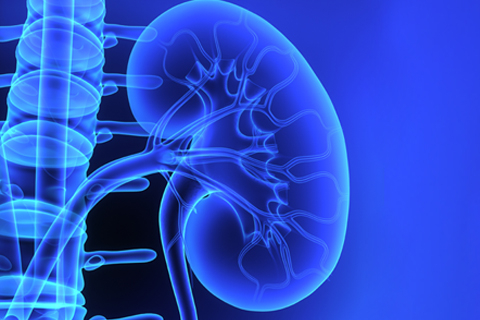Anal Sphincter Botox Injections for Children With Severe Constipation
Anal Sphincter Botox Injections for Children With Severe Constipation https://pediatricsnationwide.org/wp-content/uploads/2021/03/AdobeStock_124856540-1024x680.jpg 1024 680 Mary Bates, PhD Mary Bates, PhD https://secure.gravatar.com/avatar/d8c01b42dd4f98ebe33b59a37151ffdb0226803d9094f30793729669defbdf99?s=96&d=mm&r=g
The treatment is safe and effective for many children with Hirschsprung disease and, to a lesser extent, functional constipation.
In a new prospective study, researchers at Nationwide Children’s evaluated children with severe, refractory constipation treated with anal sphincter botulinum toxin (Botox) injection. They found the treatment can be effective in patients with both Hirschsprung disease and functional constipation, with few adverse events.
Anal sphincter Botox has been shown to relieve constipation in children with Hirschsprung disease with minimal complications. The treatment is also used in children with functional constipation, though it may be less effective. Previous studies of children with functional constipation treated with anal sphincter Botox are retrospective and report mostly positive outcomes.
Researchers at Nationwide Children’s, led by pediatric gastroenterologist and member of the GI Motility Center physician team Peter Lu, MD, MS, conducted a prospective cohort study to evaluate the efficacy and safety of anal sphincter Botox in children with severe constipation. The research team included 42 children under 18 years of age scheduled for anal sphincter Botox injection at Nationwide Children’s from July 2018 to December 2018. They collected data on symptoms and perceived effects at baseline and at two weeks, two months, and four months post-injection.
“We found that about three-quarters of families with children with Hirschsprung disease felt that there was clear improvement after the procedure,” says Dr. Lu, who is also an associate professor of clinical pediatrics at The Ohio State University College of Medicine. “For families of children with functional constipation, it was closer to 50%.”
The response rate for children with functional constipation in this study is lower than in past retrospective studies, says Dr. Lu, but is still encouraging.
“When we look at the 50% response rate for children with functional constipation, we have to consider that they have already tried multiple conventional treatments with no success,” he says.
Another difference between the new study and previous retrospective studies is that transient adverse effects were more commonly reported using this prospective design. Minor adverse effects of the treatment, such as stool accidents or pain at injection site, were reported from 38% of children at first follow-up. The researchers say that although the complaints were minor and did resolve, it is important to report them and discuss these possibilities with patients who are considering anal sphincter Botox.
“These results do not mean that every child with constipation should get anal sphincter Botox,” says Dr. Lu. “But our results are encouraging in showing that the procedure can be a safe and effective option for children with severe constipation that hasn’t responded to medications.”
Dr. Lu says this is hopefully the first of several prospective studies on anal sphincter Botox injection.
“This is definitely a treatment that warrants further investigation,” he says. “I think larger studies focused on functional constipation will help guide physicians in deciding where anal sphincter Botox fits in the overall algorithm of treating children with constipation.”
Reference:
Baaleman DF, Hallagan A, Halleran DR, Orsagh-Yentis DK, Levitt MA, Wood RJ, Benninga MA, Bali N, Vaz KH, Yacob D, Di Lorenzo C, Lu PL. Anal Botulinum Toxin in Children with Hirschsprung Disease and Functional Constipation: A Prospective Cohort study. European Journal of Pediatric Surgery. 2022 Jul 19. doi: 10.1055/s-0042-1751048. Epub ahead of print.
Image credit: Adobe Stock
About the author
Mary a freelance science writer and blogger based in Boston. Her favorite topics include biology, psychology, neuroscience, ecology, and animal behavior. She has a BA in Biology-Psychology with a minor in English from Skidmore College in Saratoga Springs, NY, and a PhD from Brown University, where she researched bat echolocation and bullfrog chorusing.
- Mary Bates, PhDhttps://pediatricsnationwide.org/author/mary-bates-phd/December 27, 2016
- Mary Bates, PhDhttps://pediatricsnationwide.org/author/mary-bates-phd/
- Mary Bates, PhDhttps://pediatricsnationwide.org/author/mary-bates-phd/
- Mary Bates, PhDhttps://pediatricsnationwide.org/author/mary-bates-phd/






